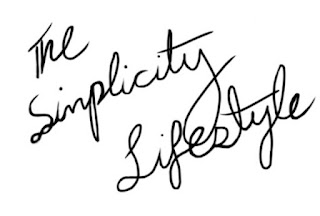Simply Changing Our Cognitive Distortions So Growth Can Occur!
- “Mindfulness: A Practical Guide to Awakening” by Joseph Goldstein
Our minds are extremely powerful, it’s possible to change the world one thought at a time.
We only know Our world by Our interpretations of Our senses and the abilities of Our brains and bodies.
We can’t sense everything that is truly happening in the moment so We have learned to filter and prioritize incoming information. The information We get is not the whole picture so Our thoughts become biased and can distort reality negatively.
First an event occurs. This happens as Our senses interact with the world, other living beings, Our personal histories, experiences, future possibilities, and ideas about Ourselves which We have pieced together using Our biased, limited, and distorted realities.
After the event comes Our beliefs and thoughts about the event, this includes Our attitude, rules, demands, images, meanings, and Our own mythologies.
Then comes the consequences of those thoughts which can be expressed as positive or negative emotions and constructive actions or destructive actions. In this world of dichotomy thoughts can either be medicine or poison.
If all that We perceive is an extremely small piece of distorted reality, and negative emotions and destructive behaviors affect Us negatively We must learn how to recondition Ourselves to see events in a more positive light. All experiences can be learned from, and since development and learning takes place experiences become useful and in a way positive!
A storm can be seen as depressing and dangerous or can be seen as the bringer of water which all living things need to survive, and with this change in perspective the storm becomes amazing, beautiful, and Powerful!
First We must become conscious of Our negative Mental Distortion so We can begin to change them.
Negative attitudes are like flat tires We must change them before We can move on.
Most of Our negativity stems from mental distortions that are not true and are not helpful.
The main cognitive distortions that we must become aware of before We can start thinking about lasting positive changes in our lives are:
1. All or nothing thinking- This is black or white thinking and it is very limiting and isn’t based in reality because there are a lot of shades of gray out there.
2. Overgeneralization- This is when We see a specific event as persisting indefinitely into the future so We keep telling ourselves things like, “life is never going to get better because at this moment it really sucks.”
3. Mental filter- This is when We obsess about some imperfection or minor flaw in a situation and fail to see the positive aspects that We could be grateful for.
4. Discounting the positive- This is when We reject compliments or positive feedback because of Our distorted and negative views about Ourselves. We also do this when We dwell on the negative aspects of things and when We compare Ourselves to others that are more skilled in an activity than We are, and there is always someone that is better at something than We are.
5. Jumping to conclusions- This is when We automatically make negative inferences about the future. We also do this when We assume that others around Us have negative motives, so We feel isolated, unsafe, anxious, and wary most of the time.
6. Magnification and minimization- This is when We exaggerate the negative parts of the situation or downplay the positive aspects. We tell ourselves “Life never goes my way, things are always so hard for me.”
7. Emotional reasoning- This is when We have totally lost control and We are following Our emotions without subjecting Our emotions to reason. If We are having an argument with someone this is a good time to step back and take a breath because this can snowball out of control pretty quickly, with the fear that there is no light at the end of the tunnel, but the truth is the tunnel is an illusion, and when looked at with a rational mind it evaporates like steam rising from our coffee or tea cups in the morning.
8. Should statements- This is when We continually tell Ourselves about all the things We should be doing but aren’t because of time, physical, and mental constraints. It isn’t a bad thing to have realistic goals, in fact, it’s a very good thing, especially when We accomplish our realistic goals. The problem arises when We have given ourselves too much to accomplish, and this list becomes a source of stress, anxiety, and even guilt. All of these states of being are not good, because there is no need for the negativity. In fact if We are feeling stressed it should tell Us that We are over doing it and need to make a conscious effort to slow down, take a deep breath, and prioritize while maintaining a good perspective and dial it back a bit.
9. Miss labeling- This is when We have a situation or person that gets Us so upset that We start using emotionally charged words which have the effect of escalating the emotional intensity of a situation. When these labels start bursting From Our mouths the best thing to do is apologize, excuse Ourselves, and do whatever it takes to calm Ourselves down. (I personally am partial to Mindfulness Meditation, but everybody has their own things they can do to self soothe.) Then We can come back to the situation after We calm down and try to work through the problem, constructively.
10. Personalization- This is when We feel strongly that We are uniquely flawed or defective in some way compared to everyone around Us, but the truth is We are all different and amazing and beautiful in Our own ways, and We are valuable and deserve peace, serenity, compassion, and love.
The Value Of Recognizing Our Distortions
“This is the beautiful secret of minimalism: It may seem like it’s about stuff, but once you’ve cut through the clutter and adopted a new frame of mind, you learn that it’s barely about ‘the stuff’ at all.”
- “The Minimalist Way” by Erica Layne
So now that We know what the distortions look like We can begin to spot them when they are happening and maybe even tell ourselves that these thoughts are not rationally based on facts. Then We can learn to not indulge or act on them.
This, of course, is much easier said than done, and I still have difficulty with my negativity at times.
Like learning any skill, at first it is difficult and requires a lot of attention, but then it becomes easier and easier the more We do it.
While We are working on these skills We can calmly work on solutions rather than pointing fingers.
Lastly We can see each other more clearly, and know that aside from Our superficial differences We are all Consciousnesses experiencing this strange and incredible thing called life from different perspectives and Our true job is to share and communicate Our perspectives with those in Our lives, and of course to be peaceful, compassionate, and loving to Ourselves as well as others.
Can a leopard change it’s spots?
“All big things come from small beginnings. The seed of every habit is a single, tiny decision. But as that decision is repeated, a habit sprouts and grows stronger. Roots entrench themselves and branches grow. The task of breaking a bad habit is like uprooting a powerful oak within us. And the task of building a good habit is like cultivating a delicate flower one day at a time.”
- “Atomic Habits” by James Clear
The seemingly obvious answer to this question is, A leopard can’t change it’s spots, but a leopard can change it’s opinions, perceptions, and biases about it’s spots.
There is always something We don’t like about Ourselves, usually a whole lot of things, but maybe what We should do is try to look at the disliked attributes more closely and maybe even differently.
There could be a really good reason We are the way We are, just like the Leopard. The Leopard may not initially like it’s spots because they don’t look like the Tiger’s stripes, but the Leopard’s spots developed over hundreds of thousands of years so they could be camouflaged in their specific environment. The Leopard can learn to appreciate it’s spots, even feel grateful for having them.
It can be difficult for Us to see the positivity in certain moments, so remember to look deeper and with a broader perspective.
We are surrounded by the dark but without the dark there can be no light!
Life is much easier to live with an optimistic attitude.
We can deprogram Our pessimistic attitudes and program an optimistic outlook.
Eventually We will feel grateful for every moment of Our lives!
Good days will bring Us into happiness, bad days will provide necessary experience, the worst days Will give Us life changing lessons that will force Us to understand at an even deeper level, and the best days will give Us the gift of Incredible memories that will keep Us going, hopefully even through the darkest of times!




Comments
Post a Comment